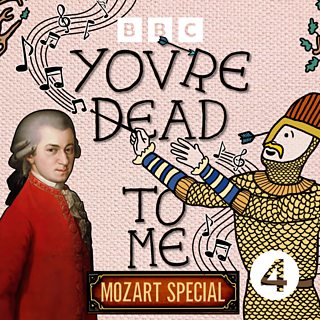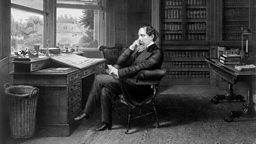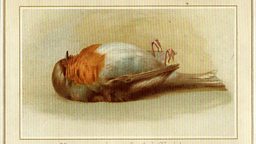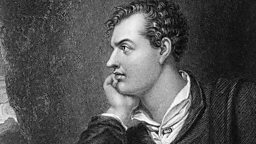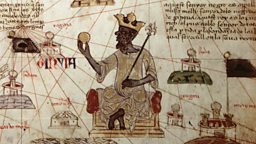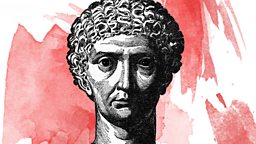9 note-worthy moments from the life of Mozart
The music of composer Wolfgang Amadeus Mozart is instantly recognisable. From Eine Kleine Nachtmusik to The Marriage of Figaro, his compositions have appeared in everything from adverts to children’s television programmes. But what was his path to fame?
On Radio 4's history podcast, You’re Dead To Me, host Greg Jenner is joined by historian Dr Hannah Templeton, comedian David O’Doherty and the ±«Óãtv Concert Orchestra to learn all about Mozart’s life and works. Here are some of the high notes they hit…
1. Talent given by God?
Wolfgang Amadeus Mozart was born in Salzburg in 1756 and began showing extraordinary musical talent at a young age. His father, Leopold, was a well-known musician and composer himself, but he thought his son was something special. So, Leopold started referring to little Wolfgang as “the miracle which God let be born in Salzburg”. He even believed that it was his duty to exhibit his son’s heaven-sent gift.
2. Wolfgang’s sister always played second fiddle to her brother
Mozart’s older sister, Nannerl, was a talented pianist in her own right. As children they toured together, showcasing their gifts in a variety of European cities, including London and Paris. But after she turned 18, Leopold decided to focus on his son, and poor Nannerl was left at home with her mother while the Mozart boys went on tour.
3. Even for a child prodigy, little Wolfgang started early
Mozart began to play the harpsichord aged three, and composed his first piece of music at five years old. And how old was he when he composed his first symphony? Eight!

4. Mozart may have annoyed the Vatican
A famous story about Mozart involves the Pope and a sacred piece of music. When he was 13 years old, Mozart visited Rome, where he heard Gregorio Allegri’s Miserere being performed in the Sistine Chapel. He then wrote down the music from memory later. Impressive, but there was just one problem: Miserere was only supposed to be played in the Vatican. Creating copies of the music was forbidden! Unfortunately, this fun story is probably a bit of a myth. Miserere had been performed outside of the Vatican for decades before Mozart heard it, and just a few months later he was made a Knight of the Order of the Golden Spur by the Pope. Clearly there was no bad blood between them.
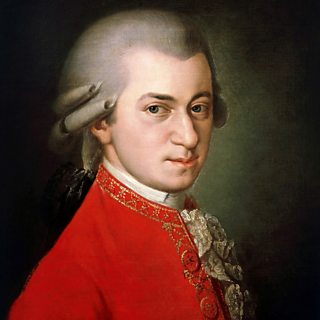
5. Mozart’s operas: good, but maybe a tad long
After a successful tour in Italy, in December 1772, Wolfgang premiered a new opera, Lucio Silla, in Milan. The catch? The performance began three hours late, and was a whopping six hours long!
6. Wolfgang was an incredibly talented composer…
In 1772, aged only 16, Mozart composed an astonishing seven symphonies. Each one was original, breaking new musical ground in terms of form, orchestration and scale.
7. …but not the luckiest lover!
Spending your teenage years travelling Europe with your dad isn’t necessarily a recipe for romance. But in October 1777, Wolfgang and his mother arrived in Mannheim, Germany, and he fell in love. The object of his affections was a singer named Aloysia Weber. But Leopold intervened, and their romance fizzled out. In 1782, a 26-year-old Mozart eventually married Constanze Weber. That’s right, he married Aloysia’s sister!
8. The Magic Flute had a mixed reception
The Magic Flute is one of Mozart’s best-known (and most-loved) operas. It was first performed in Vienna in 1791 and had been deliberately composed for a diverse audience made up of all ranks of society. Although it was popular in Vienna and Prague, the opera was received poorly in Frankfurt. Nevertheless, by 1800 it had been performed over 200 times across Europe.
9. Did Mozart write the soundtrack for his own funeral?
Wolfgang Amadeus Mozart died of a fever on 5 December 1791 aged just 35. At the time he was working on his famous Requiem, which ended up being completed by another composer after Mozart’s premature death. It’s such a beautiful, tragic piece of music that some people have speculated that Wolfgang wrote it for his own funeral. The reality is more mundane. He didn’t know that he was going to die so young, and the Requiem was actually commissioned following the success of The Magic Flute earlier in the year.
More Mozart stories across the ±«Óãtv
-
![]()
Mozart: Rise of a Genius
Discover the making of a man who created some of the world’s most magnificent music in ±«Óãtv Two's new series
-
![]()
Composer of the Week: Mozart
Dive into Mozart's world with this detailed profile
-
![]()
Building a Library: Mozart Symphony No.36 'Linz'
Discover the best recording of Mozart's so-called Linz Symphony, written in just four days
-
![]()
Building a Library: Mozart's Piano Concerto no. 21
What recording captures Mozart's dazzling Piano Concerto No 21 in it's most divine performance?
